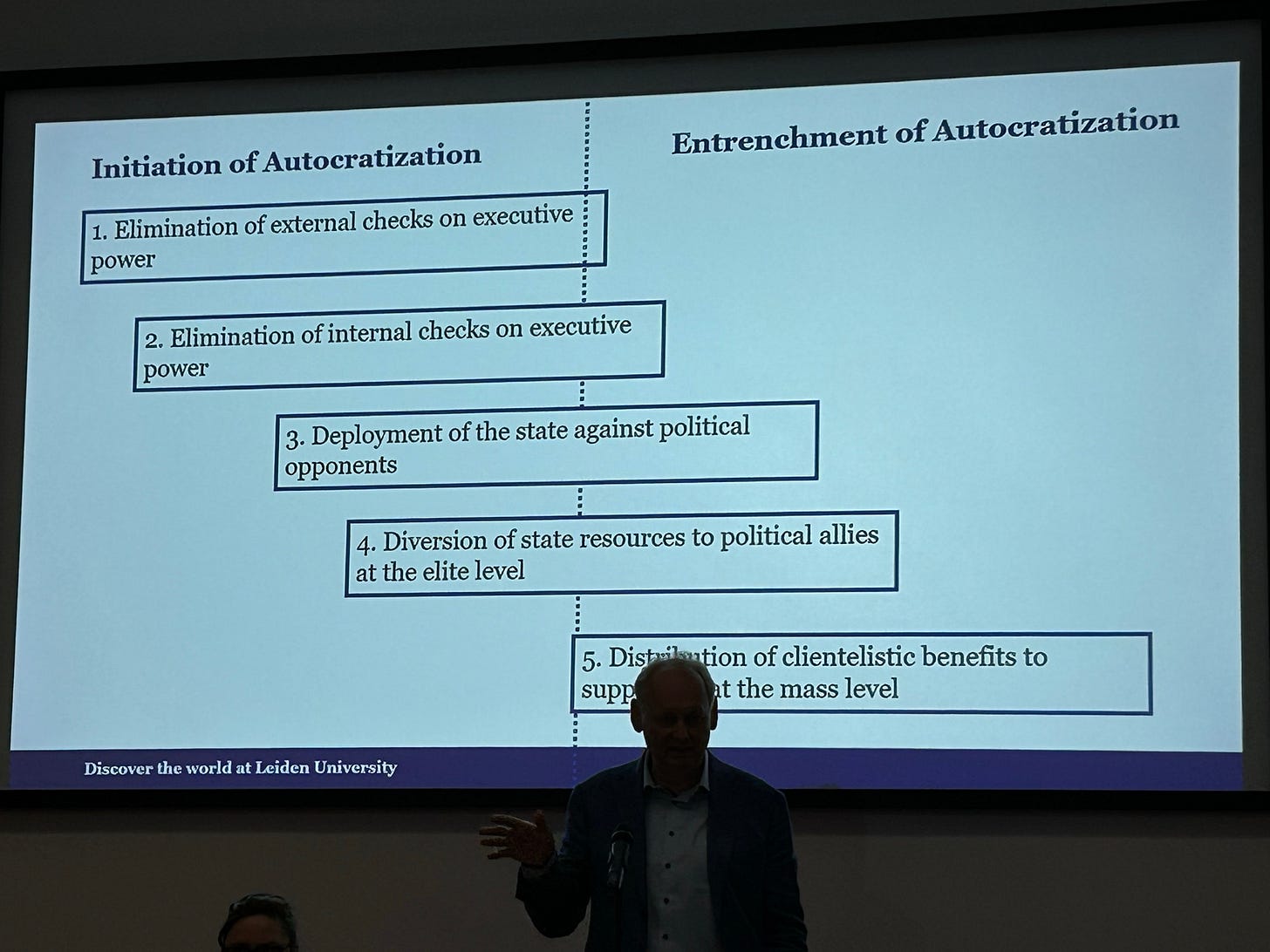Autocratization in action
Arrests of lawmakers, investigations of political opponents, and the Trump admin's statements about habeas corpus are signs of autocratization. But there's a good chance we can reverse the course.

Thanks for subscribing to American Doom. This month, the Texas-based writer and journalist Steven Monacelli is behind the wheel and keeping tabs on things for us. Having great contributors like Steven is only possible with the suppor…



